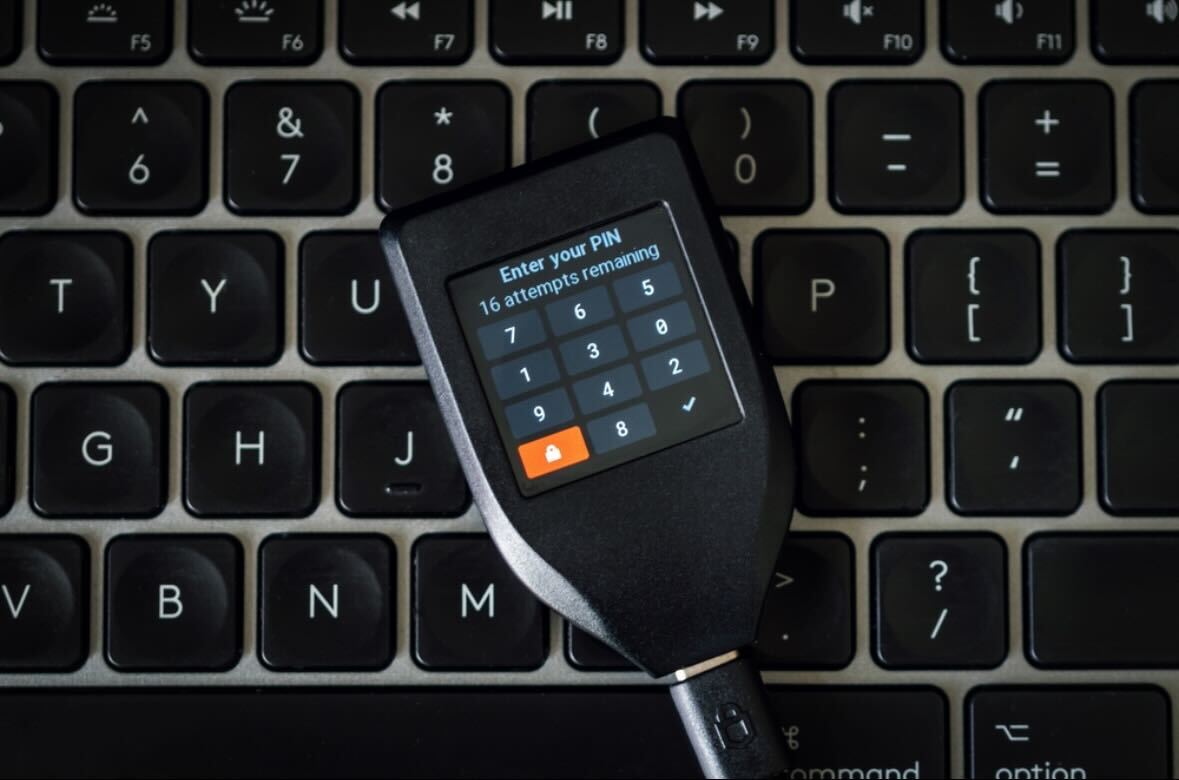As cryptocurrency adoption continues to grow, so does the need for secure and reliable storage solutions.
One project that’s captured the attention of millions globally is Pi Network, a mobile-first platform aiming to make crypto mining accessible to the masses. Its native token, Pi Coin, has seen massive distribution through smartphone-based mining, but with growing interest comes an equally important question: how do you securely store your Pi Coins?
Choosing the right wallet isn’t just a matter of convenience; it’s crucial for protecting your investment. From preventing unauthorized access to safeguarding your assets against scams, your wallet is your first—and often last—line of defence. With Pi Network’s mainnet now live and the ecosystem evolving, understanding your wallet options has never been more important.
In this guide, we’ll take a closer look at the top wallet options for storing Pi Coin, delve into the essential security features to look out for, and compare the pros and cons of different storage methods. Whether you’re planning to hold Pi long term or use it for day-to-day transactions, this article will help you choose a wallet that keeps your coins safe and secure.
Read: What is Pi Network
Key Takeaways
- The top Pi Coin wallet options include Pi Network Wallet, Trust Wallet, Ledger, and Bitget Wallet.
- Each wallet type has trade-offs in convenience, control, and security.
- Security features like private key ownership, 2FA, and regular software updates are non-negotiable.
- Beware of scams, fake wallets, and phishing attempts targeting Pi holders.
- Cold wallets like Ledger are ideal for long-term holding, while mobile wallets are best for frequent access.
- Combining a hot wallet for daily use with a cold wallet for secure backup offers the best protection strategy.
Here at The Coin Bureau, we've got an extensive selection of wallet guides:
- Custodial vs. Non-Custodial Wallets
- Top Seedless Wallets
- Top Anonymous Crypto Wallets
- Best Cold Storage Wallets
- Best Anonymous Bitcoin Wallets
- Best Crypto Wallets For Experienced Traders
- Top DeFi Crypto Wallets
- Top Hot Wallets
What Is Pi Coin & Why Secure Storage Matters?
Launched in 2019 by a group of Stanford graduates, Pi Network set out to address one of the fundamental barriers to entry in cryptocurrency — accessibility. Traditional crypto mining often requires expensive hardware and consumes large amounts of electricity, making it impractical for the average user. Pi Network took a different approach, aiming to allow individuals to “mine” Pi Coin directly from their smartphones without significant energy consumption or technical expertise.
Curious whether Pi Coin is a groundbreaking crypto innovation or just smoke and mirrors? Our full investigation breaks down the facts, risks, and red flags. Read here.
The idea is straightforward: users download the Pi app, check in daily, and accumulate tokens over time. This model, which resembles user engagement rather than conventional mining, has contributed to Pi Network becoming one of the most downloaded crypto-related applications globally.
With the recent launch of its open mainnet, Pi Network is in the process of transitioning from a closed system—where tokens held little utility—to a more open and decentralised framework. This step is intended to facilitate real-world use cases for Pi Coin, though the network’s broader functionality and long-term sustainability are still evolving.
Given the sheer number of users and the gradual shift toward open access, the question of secure storage becomes increasingly relevant.
If you're looking to sell your Pi Coins, we have a handy guide for you.
Risks of Holding Pi Coin on Exchanges vs. Private Wallets
As with any digital asset, security is non-negotiable. While Pi Coin is still finding its footing in the broader crypto market, ensuring safe storage from day one is essential. Holding Pi on exchanges or within centralised apps comes with inherent risks—chief among them, loss of control over your assets. Exchange wallets can be vulnerable to hacks, regulatory crackdowns, and even internal mismanagement, all of which could result in the loss of your tokens.
Want to learn how Pi mining really works and whether it’s worth your time? Check out Coin Bureau’s step-by-step guide.
By contrast, private wallets give you full control over your assets. You—and only you—hold the keys to your Pi Coins, significantly reducing the risk of third-party interference. In the crypto space, there’s a common phrase: “Not your keys, not your coins,” meaning using a secure wallet is not just advisable—it’s essential.
 The Pi Network Interface. Image via CoinTelegraph
The Pi Network Interface. Image via CoinTelegraphKey Features to Look for in a Pi Coin Wallet
When selecting a wallet for your Pi Coins, there are a few non-negotiable features to consider:
- Security Features: Look for wallets that offer robust security measures such as private key ownership, multi-signature support, and two-factor authentication. These features ensure that your tokens are protected against unauthorized access, even if your device is compromised.
- Ease of Use: A secure wallet is only useful if it’s easy to navigate. Prioritize wallets with a user-friendly interface, intuitive controls, and mobile compatibility—especially since Pi Network is inherently mobile-first.
- Compatibility: Your wallet should support Pi Coin transactions seamlessly, and ideally, offer integration with decentralised applications (dApps) or DeFi platforms, as Pi’s ecosystem continues to grow.
If you're interested in buying Pi Coin, our beginner's guide offers a clear, step-by-step walkthrough to help you get started.
Top Pi Coin Wallets
With Pi Network’s ecosystem continuing to evolve, the need for reliable and secure wallets is more important than ever. To help you navigate your options, we’ve compiled a quick reference table of the top Pi Coin wallets in 2025, highlighting their key features, strengths, and potential drawbacks.
| Wallet Name | Best For | Key Features | Type |
|---|---|---|---|
| Pi Network Wallet | Native Pi Coin support | Integrated app, private keys, Pi ecosystem compatibility | Mobile |
| Trust Wallet | Multi-crypto support + DeFi access | User-friendly UI, private key control, dApp integration | Mobile |
| Ledger | Maximum security + long-term storage | Offline storage, PIN protection, recovery options | Hardware (Cold) |
| Bitget Wallet | Active traders | Exchange access, quick trades | Web/Exchange |
Let’s take a closer look at each of these wallets and what they offer for Pi Coin holders.
1. Pi Network Wallet (Official Wallet)
The official wallet is developed by the Pi Network core team. Seamlessly integrated with Pi’s ecosystem, it allows users to store, send, and receive Pi Coins directly from the Pi app.
Features
- Native integration with Pi Browser
- Users hold their private keys
- Supports encrypted QR codes or cloud backups
- Access to dApps within the Pi ecosystem
Pros
- Built specifically for Pi Coin
- Easy to use for both beginners and existing Pi app users
- Does not rely on third-party services for key management
Cons
- Cannot currently exchange Pi for fiat or other cryptocurrencies
- Limited to Pi-related functionality; not multi-chain
- No advanced features like DeFi or NFT access
Best For
Newcomers to Pi Network or users primarily interacting within the Pi ecosystem.
2. Trust Wallet
A widely used non-custodial mobile wallet that supports thousands of tokens. Known for its simple UI and dApp integration, Trust Wallet is ideal for managing Pi Coin alongside other assets.
 Trust Wallet is One of The Most Established Mobile Wallets Out There. Image via TrustWallet
Trust Wallet is One of The Most Established Mobile Wallets Out There. Image via TrustWalletFeatures
- Private key ownership with biometric login
- In-app browser for DeFi and dApp use
- Support for multiple blockchains and tokens
- Regular updates and community support
Pros
- Supports a wide range of cryptocurrencies including Pi Coin
- Simple setup and mobile-first design
- Allows direct interaction with DeFi apps and NFT platforms
Cons
- As a hot wallet, it is more exposed to mobile threats
- Not optimized specifically for Pi Network dApps
- No built-in cold storage or hardware-level security
Best For
Users managing diverse portfolios who want DeFi access and mobile convenience.
Read our full Trust Wallet review.
3. Ledger (Cold Storage Option)
A hardware wallet designed to store private keys offline, offering unmatched security. Perfect for long-term holders and those prioritizing defense against cyber threats.
👉 Buy Your Ledger Wallet Now – Secure 1000+ Assets With The World's Leading Hardware Wallet
Features
- Offline private key storage
- PIN and passphrase protection
- Bluetooth support (Ledger Nano X)
- Ledger Live app for portfolio management
Pros
- Industry-leading cold storage security
- Immune to malware and remote hacks
- Long-term reliability and support for 1,000+ assets
Cons
- Requires hardware purchase (not free)
- Currently only supports Pi Coin send/receive—not trading or swapping
- Less convenient for daily transactions
Best For
Serious investors and long-term Pi Coin holders focused on maximum asset protection.
Check out our coverage of Ledger hardware wallets:
4. Bitget Wallet
The Bitget Wallet combines wallet storage, DeFi access, and trading in one non-custodial platform.
 Bitget Wallet is Among the Few Exchnage Wallets That Supports Pi Network. Image via Bitget
Bitget Wallet is Among the Few Exchnage Wallets That Supports Pi Network. Image via BitgetFeatures
- Supports Pi Coin and thousands of assets
- Built-in DEX and cross-chain swap functionality
- Available as mobile apps and browser extensions
- Optional integration with Bitget Exchange for trading
Pros
- Combines storage, DeFi, and trading features
- Private key ownership with secure backup
- Multi-platform accessibility (mobile + browser)
- Active development and expanding ecosystem
Cons
- Complexity may overwhelm beginners
- As a hot wallet, it's still vulnerable to online threats
- Security depends on user practices (no cold storage)
Best For
Tech-savvy users and active traders who want an all-in-one wallet solution for Pi and beyond.
Security Tips for Storing Pi Coin Safely
As the Pi Network ecosystem grows and more users begin to accumulate Pi Coin, securing your holdings should be a top priority. While Pi’s unique mobile-first approach makes it accessible, it also means users need to be hyper-aware of security risks. From phishing scams to malware, the threats in the crypto space are very real, and losing access to your tokens can happen in seconds if proper precautions aren’t taken.
If you're ready to trade PI, our guide to the best Pi Coin exchanges covers everything you need to know.
Here are five essential tips to ensure your Pi Coin remains safe and sound, regardless of which wallet you use.
1. Enable Two-Factor Authentication (2FA)
Two-factor authentication, or 2FA, is a simple yet highly effective way to add an extra layer of protection to your wallet. By requiring a second form of verification—typically from an authentication app like Google Authenticator—you can prevent unauthorized access even if someone obtains your password.
It’s particularly important when using wallets with cloud backup features or when accessing your Pi Coin holdings through exchanges. Whenever possible, avoid SMS-based 2FA, which is vulnerable to SIM-swap attacks. Instead, opt for app-based 2FA for enhanced security.
2. Keep Private Keys Secure
Your private key is the only way to access and control your Pi Coin. If anyone else gains access to it, they can move your tokens freely, and once that happens, there’s no way to recover them. The same applies to your seed phrase, a set of words used to restore your wallet.
Never share your private key or seed phrase with anyone, and never store them online or in cloud storage. A safer option is to write them down and keep them offline in a secure location, or use a metal wallet for added durability and protection against physical damage.
3. Use a Hardware Wallet for Long-Term Storage
For users with significant Pi Coin holdings or those who plan to HODL long-term, a hardware wallet offers maximum protection. These devices store your private keys completely offline, shielding them from online threats such as malware or phishing attempts.
While Pi Coin supports hardware wallets like Ledger or Trezor may be limited today, the growing demand for secure storage solutions means integration is likely in the future. Planning ahead by exploring cold storage options can help ensure your Pi Coins are safe in any scenario.
 Crypto is Full of Potential Security Risks. Image via Shutterstock
Crypto is Full of Potential Security Risks. Image via Shutterstock4. Beware of Scams & Fake Wallets
As with any high-profile crypto project, Pi Network has become a target for scammers. Fake wallet apps, phishing websites, and fraudulent support contacts are commonly used to steal funds. To avoid falling victim, only download wallets from official sources, verify app publishers, and be cautious of unsolicited links or messages.
Scammers often imitate official Pi Network branding, so stay alert and skeptical of anything that promises rewards or requires urgent action. Due diligence can prevent costly mistakes.
5. Regularly Update Your Wallet Software
Wallet developers regularly release software updates that patch vulnerabilities, enhance security, and improve functionality. Keeping your wallet updated ensures that you’re protected against known exploits and that your app remains compatible with the latest features of the Pi Network.
Whether you use a mobile, desktop, or browser-based wallet, make it a habit to check for updates periodically and install them promptly. This simple practice helps maintain the integrity and security of your wallet.
Types of Pi Coin Wallets
Depending on your needs—whether it’s ease of access, maximum security, or trading flexibility—there are several wallet types to choose from. Each comes with its own advantages and trade-offs, and understanding these is key to making an informed decision about where to store your Pi.
Let’s take a closer look at the four main types of wallets, along with the benefits and risks of each.
1. Mobile Wallets
Best for: Everyday transactions, mobile convenience, and on-the-go access.
Given that Pi Network is a mobile-first project, it’s no surprise that mobile wallets are the most commonly used storage solution for Pi Coin holders. These wallets allow users to access, send, and receive Pi with just a few taps on their smartphone—ideal for daily transactions or interacting with Pi’s ecosystem apps like Map of Pi or Pi Browser.
However, mobile wallets are also the most exposed to cyber threats. Smartphones can be compromised by malware, and phishing attempts are on the rise in the crypto space. It’s vital to ensure your device is secure, and that any wallet app you use is downloaded from official sources only.
 Crypto Has Faced Several Collapses of Centralised Exchnages. Image via The Guardian
Crypto Has Faced Several Collapses of Centralised Exchnages. Image via The GuardianPopular choices:
- Pi Network Wallet (Official) – Seamlessly integrated with the Pi app, this wallet offers native support for Pi transactions and is non-custodial, meaning users retain control of their private keys.
- Trust Wallet – A trusted name in the crypto space, Trust Wallet supports thousands of assets, including Pi Coin, and provides access to DeFi apps, private key ownership, and a streamlined user interface.
Check out our top picks for the best mobile wallets.
2. Hardware Wallets (Cold Storage)
Best for: Long-term holders, high-security storage, and offline protection.
For those prioritizing maximum security, hardware wallets—also known as cold storage—are the gold standard. These physical devices store your private keys offline, making them virtually immune to hacking, phishing, or malware attacks. If you’re holding a significant amount of crypto and don’t need frequent access, this is your safest bet.
 Hardware Wallets Offer Maximum Security. Image via Shutterstock
Hardware Wallets Offer Maximum Security. Image via ShutterstockThat said, hardware wallets require a small upfront investment, and not all of them currently support Pi Coin. As Pi Network matures and garners wider adoption, integration with top-tier hardware wallets is likely to follow.
Looking for a hardware wallet? Here are our top picks.
3. Web-Based & Exchange Wallets
Best for: Traders and users prioritizing speed, convenience, and easy liquidity.
Web wallets, including those provided by cryptocurrency exchanges, offer instant access and trading functionality. For users who frequently move assets or plan to trade Pi Coin once it's listed on major platforms, this can be an attractive option.
However, you don’t control the private keys, the platform does.
This makes exchange wallets a prime target for hackers and regulatory risks. Moreover, with Pi Coin’s exchange listings still limited, users should exercise extreme caution when storing Pi with third parties claiming to support it.
4. Desktop Wallets
Best for: Tech-savvy users seeking full control and desktop-based management.
Desktop wallets offer a middle ground between convenience and control. These wallets are installed on your computer and allow for full access to private keys, custom transaction settings, and, in some cases, integration with decentralised applications. However, they are vulnerable to malware and phishing attacks, especially if the operating system is not secured or regularly updated.
 Desktop Wallets Are Vulnerable to Malware and Phishing Attacks. Image via CryptoCloud
Desktop Wallets Are Vulnerable to Malware and Phishing Attacks. Image via CryptoCloudBefore choosing a desktop wallet, make sure it’s officially compatible with Pi Coin, as integration is still developing.
Curious about desktop wallets for your crypto? We've got you covered.
Methodology
To provide the most accurate and useful recommendations for Pi Coin holders, we followed an evaluation process when selecting the wallets featured in this guide. Our methodology focused on five key criteria:
1. Pi Coin Compatibility
We only considered wallets that either officially support Pi Coin or have been reported by the community to handle Pi transactions reliably. Due to the evolving nature of the Pi Network’s mainnet and token infrastructure, compatibility was the baseline requirement for inclusion.
2. Security Architecture
Wallets were assessed based on their security features, including:
- Private key ownership
- Two-factor authentication (2FA) support
- Cold storage capabilities (for hardware wallets)
- Backup and recovery methods
We prioritized non-custodial wallets that give users full control over their funds and seed phrases.
3. Usability & User Experience
Since Pi Network aims for accessibility, we evaluated each wallet’s ease of use—especially on mobile. This included setup simplicity, interface clarity, app responsiveness, and language support.
4. Additional Utility
Beyond storing Pi Coin, we evaluated how well the wallets support other features such as:
- Multi-asset storage
- DeFi and NFT access
- Cross-chain swaps
- Built-in exchanges or trading tools
How to Choose the Right Pi Coin Wallet for You?
With multiple wallet options now supporting Pi Coin, choosing the right one can seem overwhelming, especially for those new to crypto storage solutions. However, by considering a few key factors, you can narrow down the choices and find a wallet that aligns with your security needs, usage habits, and future plans within the Pi Network ecosystem.
Factors to Consider
When evaluating Pi Coin wallets, it’s essential to weigh several core criteria to ensure your holdings remain secure while still being easily accessible when needed.
- Security: This is the single most important factor. Look for wallets that offer private key ownership, two-factor authentication, and backup options. The more control you have over your keys, the better protected your Pi Coin will be.
- Ease of Use: A wallet should be intuitive, especially if you plan to use Pi Coin regularly. Mobile-friendly interfaces, simple navigation, and clear instructions for sending and receiving tokens all contribute to a smoother user experience.
- Accessibility: Consider how and when you’ll need access to your Pi Coins. If you plan to transact frequently, a mobile or web wallet offers greater convenience. For long-term storage, a hardware wallet or desktop solution may be more appropriate.
- DeFi and dApp Support: As the Pi ecosystem grows, interacting with decentralised applications could become more relevant. Wallets that support DeFi platforms, cross-chain compatibility, or browser extensions may offer more flexibility for the future.
Taking the time to assess these factors will help you avoid costly mistakes and ensure that your Pi Coin holdings are both secure and accessible as the network matures.
Comparing Hot vs. Cold Wallets
Another key consideration is deciding between hot wallets (connected to the internet) and cold wallets (offline storage). Each has its own benefits and trade-offs, depending on how you plan to use your Pi Coin.
| Wallet Type | Pros | Cons |
|---|---|---|
| Hot Wallets | - Convenient for daily use - Quick access to funds - Easy setup | - Vulnerable to hacking and phishing - Dependent on device security |
| Cold Wallets | - Maximum security - Immune to online threats - Ideal for long-term storage | - Less convenient for frequent transactions - Higher upfront cost (hardware) |
Hot wallets, such as the Pi Network Wallet or Trust Wallet, are well-suited for users who need instant access to their Pi Coins for transactions or ecosystem apps. These wallets are generally free and easy to use, but they require strict security practices to minimize risk.
On the other hand, cold wallets, like Ledger and Trezor devices, offer superior protection, storing your private keys offline and shielding your assets from cyber threats. They’re ideal for users with larger holdings or those planning to HODL over the long term.
Ultimately, the best wallet for you depends on your risk tolerance, usage patterns, and security preferences. Many users choose to combine both options: a hot wallet for daily interactions, and a cold wallet for long-term storage—the best of both worlds.
How to Set Up Pi Wallet?
Getting started with your Pi Wallet marks a key milestone in taking full control of your Pi Coin. It’s designed to be beginner-friendly, but make no mistake—this is where ownership becomes real. From this point on, you're the sole custodian of your private keys. Lose them, and there's no recovery service to help you out.
1. Install the Pi Browser App
Head to Google Play or the App Store and download the official “Pi Browser” app. This browser is the only gateway to accessing your Pi Wallet.
2. Sign in with Your Pi Network Account
Launch the app and log in using your Pi Network credentials. If you haven’t joined Pi Network yet, start there by downloading the main app and registering.
3. Navigate to the Wallet Interface
Once you're inside Pi Browser, locate and tap the “Wallet” option to begin the setup process.
4. Generate a New Wallet
Select the option to create a wallet. You’ll receive a secret recovery phrase—this is your master key. Write it down and store it securely offline. If you lose this, your wallet and coins are gone for good.
5. Create a Secure Password
Choose a strong password to protect access to the wallet on your device. This adds an extra layer of security in case your phone is compromised.
6. Begin Using Your Wallet
You’re all set. You can now interact with Pi testnet tokens. After KYC verification and mainnet migration, your real Pi Coins will be accessible here.
Closing Thoughts
As Pi Network transitions into its open mainnet phase, securing your Pi Coin has never been more important. With millions of users now holding Pi and growing interest in the project’s long-term potential, choosing the right wallet is critical to protecting your investment and navigating the evolving Pi ecosystem with confidence.
From mobile wallets like the Pi Network Wallet and Trust Wallet, to cold storage options such as the Ledger wallets, each solution offers its own blend of security, usability, and flexibility. Whether you're a frequent user engaging with Pi’s ecosystem apps or a long-term holder planning for the future, there’s a wallet tailored to meet your needs.
Remember, not all wallets are created equal, and the safest approach often involves using a combination of hot and cold storage methods. More importantly, take the time to follow best security practices—protect your private keys, stay vigilant against scams, and keep your wallet software up to date.





